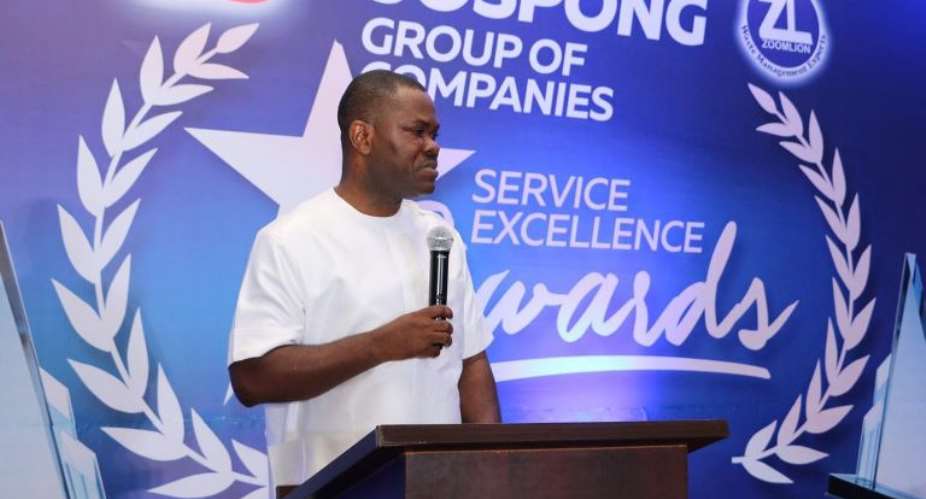I have already written, once, about the sticky issue of mandatory towing levies for all motorists in the country, and so I do not intend to belabor the subject, once again, in this short piece. I decided to address this topic, once more, after I came across a news story captioned “Mandatory Tow Levy Bogus – A Plus” (Starrfmonline.com / Ghanaweb.com 8/7/17), in which the popular Ghanaian Rap-Artist A-Plus bitterly decried what the young man deemed to be a devious attempt by some rascally politicians to dupe Ghanaian motorists. Before I came across this news article, I was not aware of the fact that tenants and homeowners were paying for streetlights, in addition to their own electricity bills, and for streetlights that were more often unlit and thus literally purposeless. In other words, the Electricity Company of Ghana, so-called these days, has been taking the Ghanaian taxpayer to the cleaners, as it were, month in and month out.
If the preceding case scenario, as pointedly and bitterly related by Rapper A-Plus, is more the reality than the anomaly, then, of course, it makes perfect sense for taxpayers to be outraged by the proposed mandatory imposition of a towing-tax levy. The government first has to demonstrate good faith by providing utility services for which customers of the Electricity Company of Ghana (ECG) have promptly paid for. But here, though, what I want to add to the ongoing national controversy over the towing levy is that the government needs to promptly get out of this business by contracting with a specified number of private entrepreneurs with proven expertise in this sector of the economy to take over. These companies should be made to either merge with or work closely with reliable auto-insurance companies in the country, who would then add the towing levy to insurance premiums as is routinely done in most of the technologically and economically advanced Western nations.
The government could still remain in the truck-towing business, but it ought not to control more than, say, 30-percent of the business. Here also, it would make better sense for the government’s towing company to merge or work hand-in-glove with the State Insurance Corporation, for example, or any one of the other state-sponsored insurance firms. It is absolutely unnecessary to get into the cynical question of whose car or vehicle is more likely to break down more often than another’s. the very game of insurance is one of probabilities and possibilities. You may be a first-rate or an A-Plus driver, but that is no guarantee against the avoidance of accidents on our roadways. All it takes is one reckless or drunken driver under the proverbial influence to put you in need of a tow truck in the most ungodly hour of the night or force you to make an insurance claim or benefit. This is why we need to approach this conversation with utmost caution and maturity.
There is absolutely no sound way of avoiding this practical reality of our existence as motorists. Which is why the government must be firm and resolute and stop being wishy-washy about this critical life-and-death matter. A constructive approach, such as suggested above, must be doggedly pursued without fear or favor. It is quite clear that the main grievance or misgiving of motorists on the subject is not about the proposed towing levy itself, but the tentative way and manner in which the government seems to be going about it.
*Visit my blog at: kwameokoampaahoofe.wordpress.com Ghanaffairs





 Dumsor must stop vigil part 2: We’ll choose how we demonstrate and who to partne...
Dumsor must stop vigil part 2: We’ll choose how we demonstrate and who to partne...
 2024 elections: NDC stands on the side of morality, truth; NPP isn't an option —...
2024 elections: NDC stands on the side of morality, truth; NPP isn't an option —...
 Akufo-Addo has moved Ghana from 'Beyond Aid' to ‘Beyond Borrowing’ — Haruna Idri...
Akufo-Addo has moved Ghana from 'Beyond Aid' to ‘Beyond Borrowing’ — Haruna Idri...
 Train crash: NDC is full of evil mindset; driver who 'deliberately' parked the c...
Train crash: NDC is full of evil mindset; driver who 'deliberately' parked the c...
 Dumsor: Energy Minister must be fired; it’s becoming unbearable — IES
Dumsor: Energy Minister must be fired; it’s becoming unbearable — IES
 #DUMSORMUSTSTOP: IMANI responds to Yvonne Nelson's call for a joint vigil
#DUMSORMUSTSTOP: IMANI responds to Yvonne Nelson's call for a joint vigil
 'Obiara b3didi' — Manhyia South NPP Chairman fights for resourcing of NPP grassr...
'Obiara b3didi' — Manhyia South NPP Chairman fights for resourcing of NPP grassr...
 Dumsor: This thing is becoming unbecoming, collapsing our business — Nana Ofori ...
Dumsor: This thing is becoming unbecoming, collapsing our business — Nana Ofori ...
 Dumsor: It'll be no more by the end of April — Gideon Boako assure Ghanaians
Dumsor: It'll be no more by the end of April — Gideon Boako assure Ghanaians
 "I can now see clearly with my two eyes, thanks to the generosity of Afenyo-Mark...
"I can now see clearly with my two eyes, thanks to the generosity of Afenyo-Mark...
